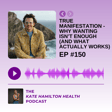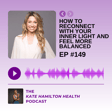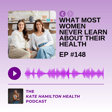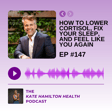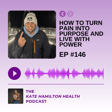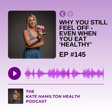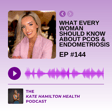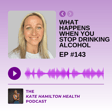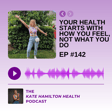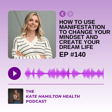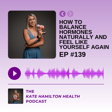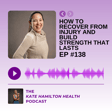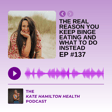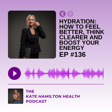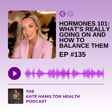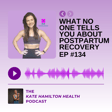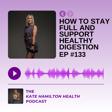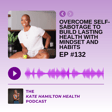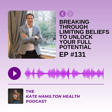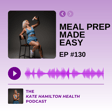
#141: Catherine O'Keeffe: What Every Woman Needs to Know About Menopause
If menopause has ever left you feeling confused, overwhelmed, or like you’re losing touch with yourself - this episode is for you.
I’m joined by the incredible Catherine O’Keeffe, Ireland’s first menopause coach and founder of Wellness Warrior, for a powerful and deeply relatable conversation. Catherine shares her personal experience with perimenopause, the misinformation she had to untangle, and how that journey led her to become a leading voice in menopause support.
We chat about the early warning signs, the emotional rollercoaster, and the real-life strategies every woman deserves to know - whether you’re in perimenopause or fully in the thick of menopause. We also discuss how workplaces can step up to support women better and why reframing menopause as a time of empowerment and renewal can be life-changing.
This is an honest, hope-filled episode that cuts through the confusion and delivers clarity, compassion, and confidence.
EPISODE HIGHLIGHTS:
[0:17] Meet Catherine O’Keeffe: Ireland’s first menopause coach and founder of Wellness Warrior
[1:18] Busting myths: The most common menopause symptoms and misconceptions
[2:57] Catherine’s personal story through perimenopause and how it changed everything
[10:40] Real, practical advice for managing symptoms and feeling empowered
[12:46] Why your doctor may not have the full picture—and what to do about it
[21:45] Early signs of perimenopause you should never ignore
[28:21] Understanding blood tests, hormone levels, and what they really tell you
[34:46] The truth about the coil, HRT, and personalized treatment options
[37:15] Lifestyle shifts that can dramatically improve your menopause experience
[52:29] Mental health, compassion, and how to take care of your emotional wellbeing
[1:03:15] Reframing menopause: It's not the end, it's a powerful new beginning
Links & Resources:
- Connect with me on Instagram here
- Connect with Catherine on Instagram here
- Learn more about KHH coaching here
- Download Catherine’s symptom tracker here
- Find out more about Catherine’s book here
If you enjoyed this episode, please subscribe, leave a review, and share it with friends who might benefit. For more health and fitness tips, follow me on Instagram and TikTok @katehamiltonhealth.
Music b LiQWYD Free download: hypeddit.com/link/xxtopb [http://hypeddit.com/link/xxtopb] Promoted by FreeMusicPromo [https://www.youtube.com/channel/UCbycji-eySnM3WD8mbxPUSQ] / @freemusicpromo
